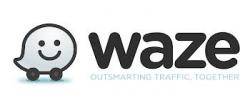 This week, after various purchase rumors of< a href="http://www.waze.com/">Wazefinally the news broke: Waze is bought by Google for 1,500 million dollars. For those who believe that Waze is just an app or do not understand why it can be worth 1.5 billion dollars, I will try to provide some keys that I think are important in Waze’s valuation.
This week, after various purchase rumors of< a href="http://www.waze.com/">Wazefinally the news broke: Waze is bought by Google for 1,500 million dollars. For those who believe that Waze is just an app or do not understand why it can be worth 1.5 billion dollars, I will try to provide some keys that I think are important in Waze’s valuation.
Perhaps the first premise that must be understood is that Waze is not just an app but rather has several differential technologies over which Google wants greater control, and in which Google has not yet managed to lead . Waze’s case is different from Instagram’s. If in the latter its valuation was due above all to its huge user base and its rapid growth rate (100 million users at the time of purchase). Waze had “only” 50 million users at the time of purchase while Google Maps is ubiquitous on all mobile phones (it is estimated that there are 900 million active Android phones).Google is not looking to win users with Waze. The explanation for Waze’s value, therefore, lies elsewhere, in this case, it’s technology.
Waze is an app and it is not at the same time because Waze has managed to master several technologies in which Google wants to be a leader. On the one hand, Waze has managed to bring a good Big data exploitation experience to mobile phones. Waze is capable of processing the information generated by a distributed user base, exploiting it and offering the user, in an extraordinary way, a solution to a non-trivial problem: finding the best route in real time by responding to thousands of simultaneous events coming from from millions of sources (crowdsourcing). The technology to do that and, furthermore, to do it on the mobile (after all, a device with limited computing and visualization capabilities) is not simple.
Probably Google is perhaps the best example of what Big Data means, but its maps still lack good use of the social layer and real-time response. With Waze Google strengthens these technological areas in which It is clear that it wants to position itself, as is evident with its commitment to other products such as Google Now and Google Plus. And this is where perhaps the icing on the cake for Google comes in because Waze presents enormous synergies with these two products. Waze can be a differential element to promote Google’s social network, Google plus, while it can allow Google to gain ground in a space in which it can be threatened by networks such as Facebook or Twitter: search “in the time” (that is, the search in temporary variable). In a world where immediacy is very relevant, Google has been investing for years to be more relevant in “what’s happening now”.
Finally, the purchase of Waze is strategic on the competitive map in the sense that it means an important advantage over Apple and Facebook on mobile and on maps, and therefore in “Local”, two areas in which that the big players know that a large part of the advertising pie of the present and, if possible, of the future is moving.